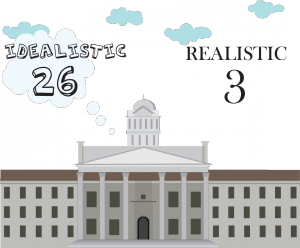Staff Editorial: College For All Act: Idealistic or Realistic?
On May 19, Democratic presidential candidate Bernie Sanders proposed the College for All Act to eliminate undergraduate tuition and fees at all four-year public universities and colleges. He plans to fund this by implementing the “Robin Hood Tax” on Wall Street, a tax imposed on various investments, funds and trades of stocks. The College For All Act would also help alleviate the student loan burdens on college graduates
Sanders’s plan is meant to address the problem of college affordability, so that students from all economic backgrounds will have access to a higher education despite the ever rising costs of college tuition. However, there are quite a few problems with Sanders’s college plan that could make it an idealistic dream rather than a feasible reality.
Although Sanders’s proposed college plan is supposed to benefit those with lower incomes, his plan will actually do the opposite. Since Sanders’s plan is providing free public tuition to all with no restrictions in regards to family income, it allows students who already have enough money to go to college free of cost. Those students then already have money saved and ready to spend on top-tier graduate schools, giving them the advantage in obtaining better jobs compared to those who have to work to save for graduate school.
In essence, the College For All Act would grant all students the opportunity to obtain a college education. However, a college degree does not necessarily guarantee a job after graduation. If this act passses, the number of college-educated individuals in the country is sure to increase dramatically. As a result, big businesses and companies would probably hire the graduates from top-tier graduate schools and private schools as opposed to the many graduates from four-year public universities.
Germany, Denmark and Finland all provide free tuition for public colleges and universities, but the chances of America eliminating public tuition is very slim. For the act to be implemented, the Republican-dominated Congress will have to approve it. However, Republicans are largely against the idea because they believe that the government should have little to no role in education, according to Republican Views.
One concern that could cause the plan to fail if not implemented correctly is what the incentive for students to enter post-secondary education if it is free like high school and elementary school? However, on the flip side, others are worried about how long the wait list is going to be if four-year public colleges and universities are free for all. If everyone is eager and willing to try harder to get into college, are wait lists going to extend to the point where students have to wait years before they can even enter college?
Ultimately, Sanders’ proposed plan seems like a dream come true to many young students throughout America. However, due to its unreaslistic goals and slim chances of passing through Congress, this is more likely to remain a dream than become reality.
